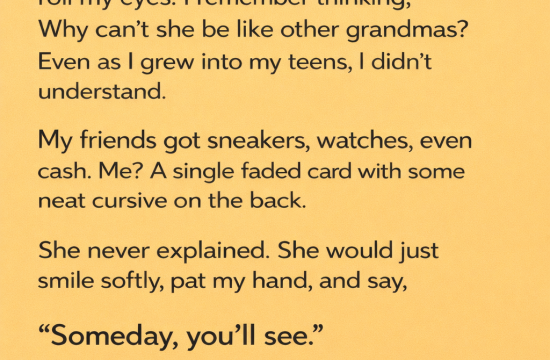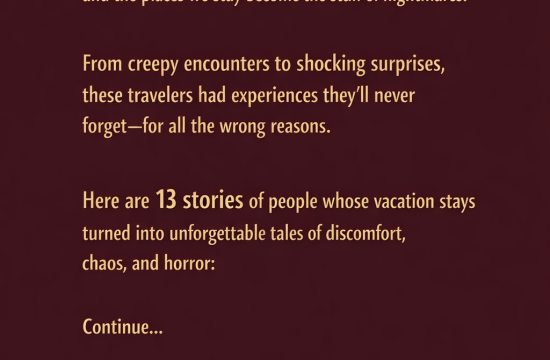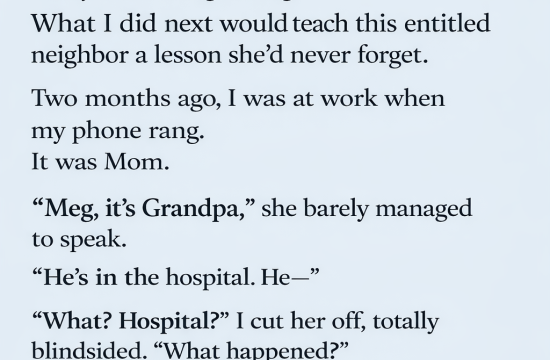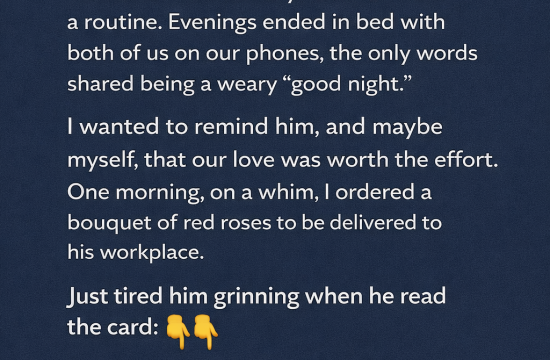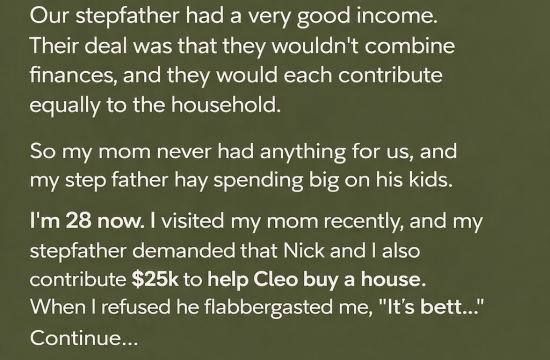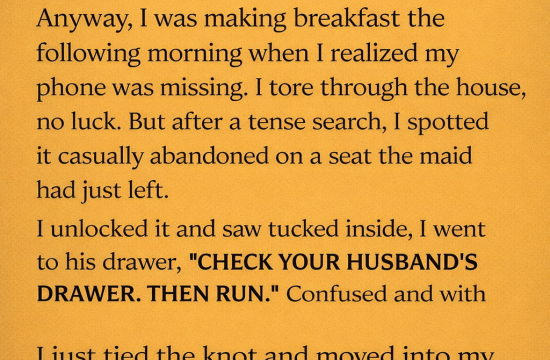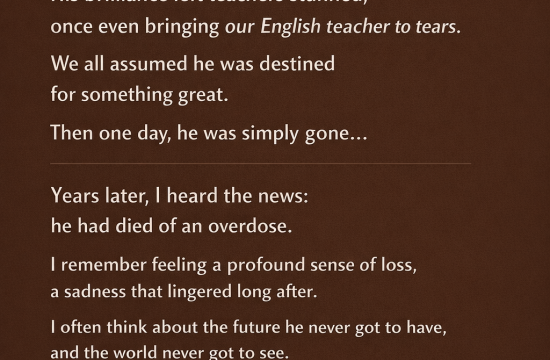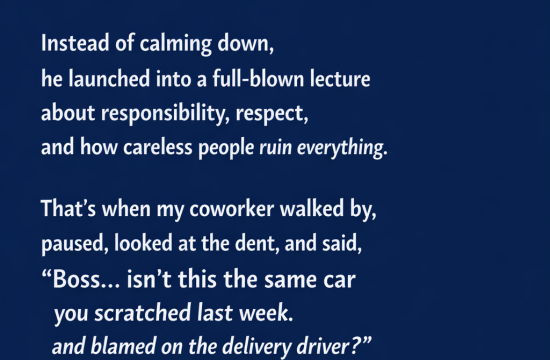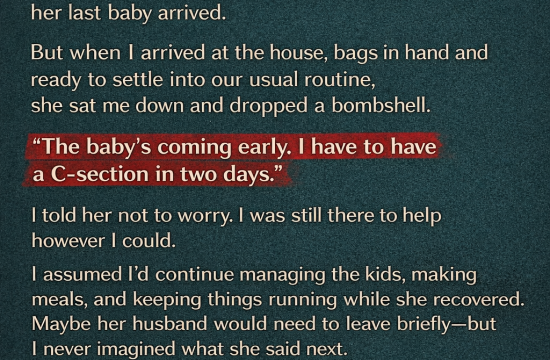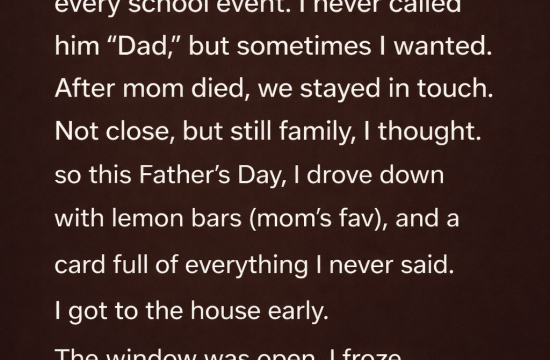I’m Maribel, 34, a nurse. My younger brother, Deacon, dropped out of college and never worked a day in his life. Somehow, my parents still paid off his debt and bought him a car—while I got nothing but a pat on the back. When I asked why, my dad shrugged and said, “You don’t need help.”
I stayed silent then. But at my wedding, I finally let the truth breathe, and it blindsided them.
Back in nursing school, I worked two jobs—a diner and a small clinic—just to keep myself afloat. I’d fall asleep with textbooks in my lap, waking when cold coffee spilled across my notes. Through all of it, my grandmother Esme called constantly. “You’re the strongest woman I know, Maribel,” she’d say. Her voice was my anchor. I saved every voicemail.
Meanwhile, Deacon slept in, played video games, and bragged about the car my parents gifted him. At family dinners, I’d wash dishes while Mom and Dad praised him for… nothing. “You’re good,” Dad would say. “You don’t need spoiling.”
I told myself it didn’t sting. But it did. Every single time.
Ellis—my fiancé—noticed immediately. After his first dinner with them, he asked on the drive home, “Do they always act like Deacon’s royalty?”
I shrugged. “He’s the baby. They think he’s fragile.”
Ellis shook his head. “No one’s that fragile at thirty.”
His words sat in my chest like a stone I couldn’t put down.
When we planned our wedding, I wanted something small and intimate. My parents insisted on something grand to impress their friends—yet offered no help paying for it. Ellis and I stood firm. We rented a simple community hall and crafted DIY centerpieces with our friends. It wasn’t fancy, but it felt real.
At the reception, during the speeches, my dad looked ready to claim the microphone. But I stepped up first. My palms shook, but my voice didn’t.
I thanked Ellis, our friends, and most of all—Grandma Esme.
“Without her, I wouldn’t have made it through nursing school,” I said. “She was the only one who believed in me when I felt completely alone.”
Silence.
A collective, stunned silence.
My parents’ faces turned crimson. Deacon looked like he’d swallowed a lemon. But I didn’t care. The applause that followed wasn’t polite—it was heartfelt. For the first time in my life, I felt seen.
Weeks passed without a single word from my parents. It hurt—deeply—but I told myself this was clarity, not loss.
When Mom finally called, her voice was brittle. “You embarrassed us.”
Dad demanded an apology.
I took a deep breath. “I love you,” I said. “But I’m done pretending everything was fair.”
Then I let them go.
Months passed. Deacon texted occasionally—memes, pictures of his cat—but it all felt hollow. I poured myself into my marriage, my work, and building a life that didn’t revolve around being the family’s invisible backbone.
One night, after losing a patient I’d grown close to, I fell apart. I collapsed onto the bathroom floor, sobbing. Ellis sat beside me and whispered, “You don’t have to carry everything alone.”
His words cracked something open. My whole life, I believed I had to be strong because no one had ever given me permission to be anything else.
Three months after the wedding, a letter arrived—from my parents’ lawyer.
They wanted me to sign away any claim to their estate.
My hands trembled as I held it. It was a final rejection—a formal erasing of me. Ellis held me as I cried, but for the first time, my tears felt cleansing. The grief was honest. So was the freedom.
The next morning, I wrote them a letter.
I told them I forgave them.
Thanked them for the resilience they unknowingly gave me.
And promised I wouldn’t chase them anymore.
I mailed it without expecting a reply.
Life moved forward. I dove deeper into nursing with more compassion, more softness. Ellis and I adopted a scruffy little terrier named Pickle who barked at his own reflection. Our small apartment felt full for the first time.
Then, one rainy Tuesday, everything shifted again.
A neighbor near my parents’ home called. Mom had slipped in the driveway. Deacon was nowhere to be found.
I didn’t hesitate. I drove straight over.
I found her shivering, ankle twisted, rain soaking her blouse. I knelt beside her, brushing wet hair from her face.
“I didn’t know who else to call,” she whispered.
At the hospital, I managed her pain, explained everything to the doctors, and arranged follow-up imaging. Dad arrived an hour later—pale, shaken. His hands trembled when he said, “Thank you.”
During Mom’s recovery, I visited daily—not for validation, but because compassion is part of who I am. One afternoon, as I helped her adjust her leg brace, she asked softly, “Were we really that unfair to you?”
I nodded.
She began to cry—raw, unguarded tears. “I thought I was protecting you,” she whispered. “I thought pushing you would make you strong. I didn’t realize I was breaking your heart.”
I forgave her. And the forgiveness felt like laying down a weight I didn’t even know I’d been holding on my spine for years.
Deacon showed up days later, looking exhausted. “Why are you doing all this?” he asked.
I looked him in the eye. “Because someone has to. And because I still care.”
Something softened in him. He took Mom to follow-ups. Helped around the house. Then one day, he announced he’d gotten a part-time job. Another month later, he enrolled in community college.
It wasn’t perfect. It wasn’t a fairy tale. But it was a start.
Then came the biggest twist.
Grandma Esme’s lawyer called. She’d quietly invested in an apartment building decades ago—and left everything to me.
I cried until my ribs hurt. It felt like her final hug from across time.
Ellis and I bought our first home. We started a nursing scholarship in Grandma Esme’s name—for students with no one behind them except their own determination.
When I told my parents, Dad’s eyes filled with tears. Mom whispered, “She’d be proud of you.” And for the first time in my life, I believed her.
Deacon called every week after that, sharing random facts he learned in class. I cheered him on like I had once wished someone would cheer for me.
Family dinners resumed. Still imperfect. But honest. Healing in slow, careful layers.
One evening, as the sun dipped below the horizon, Dad turned to me and said, “You were always the strong one. I just wish I’d told you sooner how proud I was.”
My eyes filled with tears.
I smiled softly.
“It’s never too late.”
And he was right.
It wasn’t.


